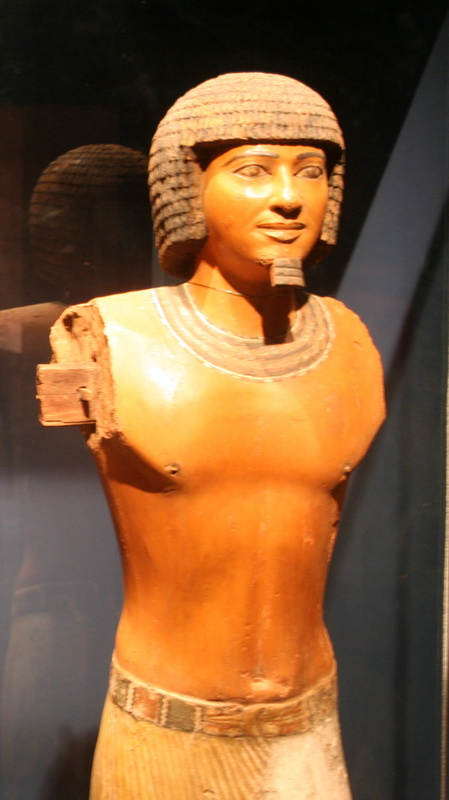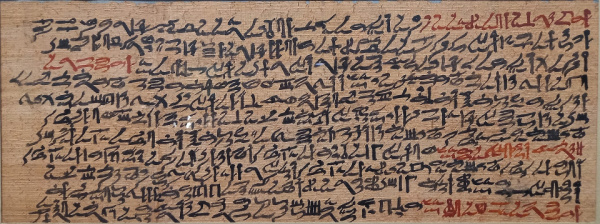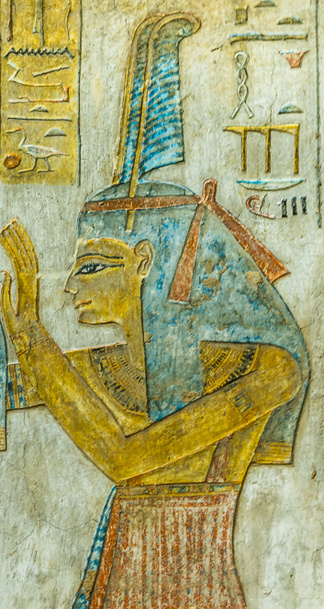The proverbs of Ptahhotep
The proverbs of Ptahhotep
The proverbs of Ptahhotep
-
Hannah
-
Hannah

Thoth, Egyptian god of wisdom and writing, Temple of Ramses II, Abydos
Those of you who have read my books will know that I enjoy weaving proverbs into the narrative. They say so much about a country and its people, its culture and its heritage. In Song of the Nile, I share proverbs that I grew up hearing in Egypt; for example ‘There is none more blind than he who doesn’t want to see’ and ‘Envy is the companion of great success’ and ‘Rather be touched by fire than by dishonour’.

The history of proverbs surely dates back as far as the history of language; people have always sought wisdom and then been moved to share that wisdom with others. Many proverbs are no doubt lost to the sands of time, but in Egypt we have a very precious source of such wisdom from ancient times: The Maxims of Ptahhotep.
Ptahhotep was the vizier of the Old Kingdom pharaoh Djedkare Isesi, who ruled from the late 25th to mid-24th centuries BC. A vizier, as the pharaoh’s highest-ranking official, was seen to be a very wise person, and in The Maxims Ptahhotep is passing on his wisdom to his son as his successor.

Statue of Ptahhotep, Imhotep Museum, the Saqqara necropolis
The Maxims of Ptahhotep is the oldest piece of so-called ‘wisdom literature’ that we have from ancient Egyptian times. It was discovered in the coffin of the pharaoh Sekhemre-Wepmaat Intef (reigned c.1573–1571 BC) near Thebes and published by the French Egyptologist Émile Prisse d’Avennes. The Prisse Papyrus, as it is known, contains the complete text of The Maxims of Ptahhotep. (Three other copies have been found since, but they are not complete.)
The author of the text is purported to be Ptahhotep himself, but experts believe that in fact The Maxims was written later, during the Middle Kingdom (11th and 12th dynasties, c. 2040–1782 BC); the Prisse Papyrus has been dated to this era. Ptahhotep is cast in the role of narrator, a wise old man offering valuable teaching to his son – and to all who read The Maxims.

Extract of The Maxims in the Papyrus Prisse
At the core of the text, underlying the proverbs, you find Maat: the principles of justice, order, harmony, truth, balance, morality and law, which were seen as fundamental in daily life and were personified by the goddess Maat. The Maxims was, essentially, an instructional text on how to live well, in such a way as to do right by other people and to please the gods – especially the goddess Maat.

The goddess Maat, from the tomb of Tausert and Setnakht, Valley of the Kings, Luxor
I have collected some of the proverbs from The Maxims of Ptahhotep here.* They offer a glimpse into life for people of the Middle Kingdom, but also, I think, of humankind itself, for some of the wisdom still resonates today, thousands of years after it was first conceived.
Let your face be bright as long as you live.
Injustice exists in abundance, but evil can never succeed in the long run.
Punish with principle, teach meaningfully.
The mild man receives more respect than the strong.
Follow your heart all your life…
Listening benefits the listener.
Only speak when you have something worth saying.
There is no tomb for the greedy hearted.
A woman with a happy heart brings equilibrium.
Love your wife with passion.
May your heart never be vain because of what you know. Take counsel from the ignorant as well as the wise…
Do not repeat a slanderous rumour, do not listen to it.
Do not place any confidence in your heart in the accumulation of riches, since everything that you have is a gift from the gods.
Think of living in peace with what you possess, and whatever the gods choose to give will come of its own accord.
No doubt Thoth, the Egyptian god of wisdom and writing, would have been most pleased with this sebayt text, designed to show the true and right way to live.
If you are interested in reading more of The Maxims, you can find the full translated text on the website of University College London as part of its Digital Egypt for Universities project.
* Translations from The Living Wisdom of Ancient Egypt by Christian Jacq and University College London.
Photo credits: 1) BasPhoto/Shutterstock; 2) Kurohito/Wikipedia; 3) Stig Alenas/Shutterstock; 4) Zunkir/Wikipedia.